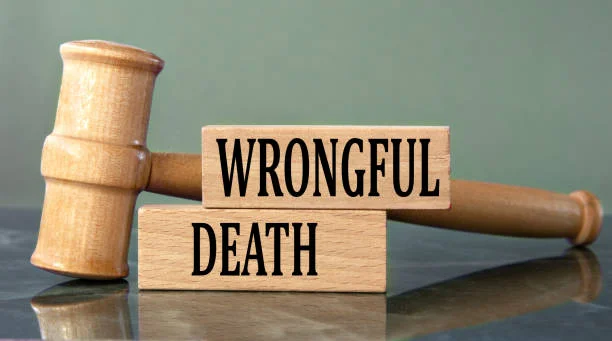Losing a loved one unexpectedly is a profoundly difficult experience, particularly when their death may have been preventable or the result of someone else’s negligence. In Oklahoma, the law provides vital avenues for families to find justice and closure, with a Personal Representative playing a pivotal role in navigating what can otherwise be a very overwhelming process Wrongful Death.
The Personal Representative is responsible for handling the estate and coordinating legal matters related to wrongful death, serving as both a guide and advocate during a time of immense grief. Whether it’s managing communications with insurance companies, working through probate formalities, or engaging attorneys, their involvement helps ensure that your family’s rights are protected and the estate is handled with care, dignity, and efficiency.
Understanding the Role of a Personal Representative
When a loved one passes away, a Personal Representative—sometimes called an executor—steps into a position with legal authority to handle the deceased’s estate. They manage a range of responsibilities: notifying beneficiaries, settling debts, and ensuring that assets are distributed per the decedent’s will or under Oklahoma law if there is no valid will. It’s a role that carries both legal duty and emotional weight.
In cases of wrongful death, the Personal Representative may additionally need to coordinate with attorneys, insurance firms, and court systems to assert the family’s right to compensation. This includes filing claims, gathering evidence, and representing the estate’s interests in court if necessary. Their guidance ensures that every step conforms to legal requirements and that the decedent’s wishes—or state law—are upheld throughout the process.
Appointment and Qualifications
In Oklahoma, the appointment of a Personal Representative typically occurs through probate court, where a will designates an individual or, if there’s no will, the court appoints someone. The individual appointed must be qualified under state law—commonly a close family member, though professional representatives can be considered if needed for impartiality or expertise.
Qualifications include being of legal age, possessing no felony convictions, and not being incapacitated. This process provides both legal clarity and structure, ensuring that the responsibilities of estate settlement and any wrongful death claim proceed in a lawful and orderly manner, minimizing disputes and delays.
Discover insights you didn’t know you needed—check the related post.
Administrative Duties After Appointment
Once a Personal Representative is officially appointed, they take on a wide range of responsibilities to ensure the estate is properly managed and distributed. These duties involve handling both financial and legal matters while keeping beneficiaries informed. Key tasks include:
- Taking inventory of assets – Identifying and cataloging bank accounts, real estate, personal property, and other valuables.
- Reviewing liabilities – Determining outstanding debts, loans, or financial obligations owed by the decedent.
- Notifying creditors – Ensuring all valid creditors are informed and paid from estate funds in accordance with Oklahoma law.
- Managing estate funds – Overseeing accounts to ensure proper handling of payments, debts, and distributions.
- Communicating with beneficiaries – Keeping heirs updated on the probate timeline, pending claims, and expected distributions.
- Handling wrongful death claims – In applicable cases, explaining potential compensation options, expected timelines, and how any recovery may be allocated.
- Ensuring compliance with probate law – Following Oklahoma’s legal requirements to finalize the estate in a lawful and orderly manner.
Working with Legal Counsel and Filing Claims
A critical aspect of a Personal Representative’s role in wrongful death cases is collaborating with skilled attorneys. They work together to assess the strength of the claim, collect relevant evidence such as medical reports or accident details, and prepare legal filings to initiate a suit on behalf of the estate.
This partnership is essential, as attorneys guide cases through the court system or settlement negotiations while the Personal Representative provides necessary support and estate resources. Their coordinated efforts help ensure the deceased’s rights and the estate’s interests are vigorously represented.
Managing Settlements and Court Proceedings
Should a wrongful death claim result in a settlement, the Personal Representative oversees allocating the funds in compliance with legal requirements. Oklahoma law may dictate specific distribution priorities, such as reimbursements for funeral costs, medical bills, administrative expenses, and then distributions to beneficiaries.
If a case goes to trial, the Personal Representative may need to ensure that estate funds cover litigation costs and that court-mandated timelines are followed. They work closely with counsel to represent the estate’s interests, attend hearings, and ultimately, safeguard that any awarded compensation supports the decedent’s loved ones properly.
Liability and Legal Protection
Serving as a Personal Representative brings significant responsibility—and potential personal risk if duties are mishandled. To manage this, they must act with impartiality, transparency, and diligence, documented through inventories, receipts, and detailed court filings.
Oklahoma probate rules include safeguards: Personal Representatives can be released from liability through the proper court accounting and may also obtain bond waivers in uncomplicated estates. Acting ethically in a wrongful death context is doubly important—balancing the grief of beneficiaries with meticulous attention to legal duties fosters trust and ensures accountability.
Final Distribution and Closure
Once debts are settled and claims resolved, the Personal Representative distributes remaining assets in accordance with the will or state intestacy laws. In wrongful death cases, beneficiaries often include spouses, children, or other survivors who may rely on these funds for financial stability or counseling services.
Finally, the Personal Representative completes the estate by filing closing documents with the court—demonstrating that all administrative and legal duties, including settling wrongful death proceedings, are concluded. This final step provides closure for the family and fulfills the legal obligations entrusted to them.
Why Choosing the Right Personal Representative Matters
Not every Personal Representative will handle their role with the same care, understanding, or skill. Choosing the right person for this job can greatly affect how smoothly the probate process goes and how effectively a wrongful death claim is handled. Families should think about not only who qualifies legally but also who can stay fair, organized, and responsive during what can be a very emotional time.
Selecting the right person helps protect the estate, ensures all beneficiaries are treated fairly, and allows for legal actions to be taken without unnecessary delays or arguments. A competent and caring Personal Representative can bring stability to grieving families and help them achieve closure and financial recovery.
Unlock deeper knowledge—explore more valuable content today on 2A Magazine.







